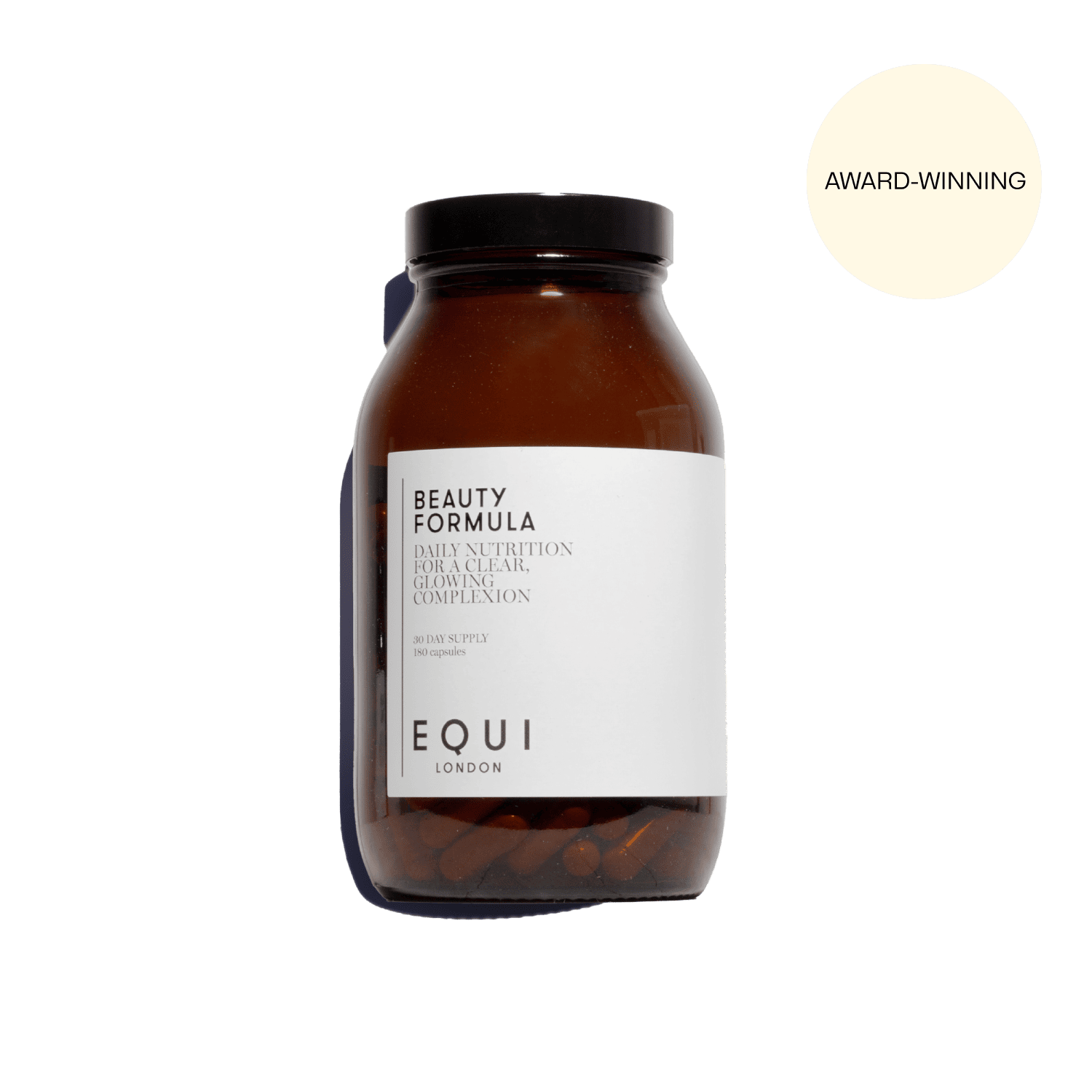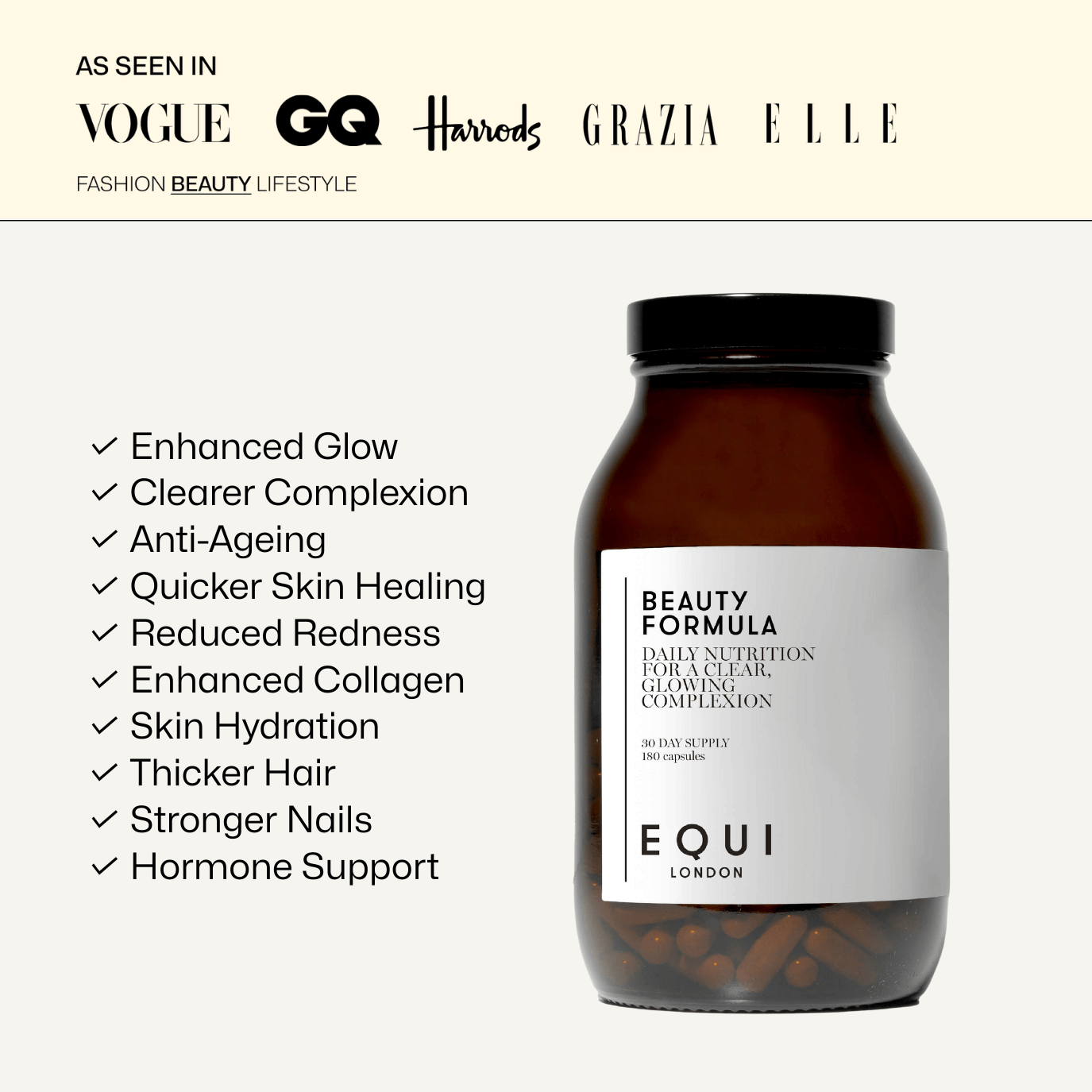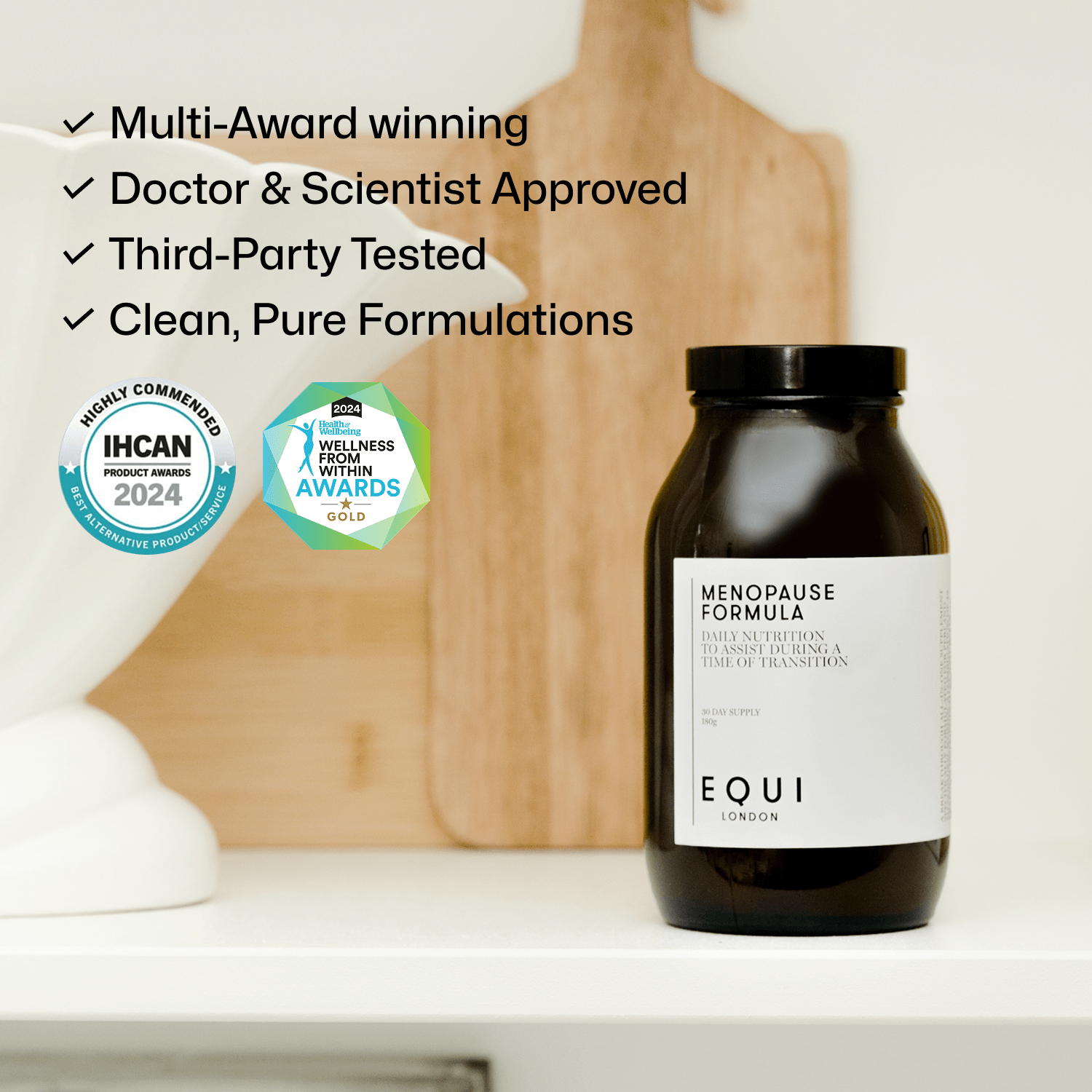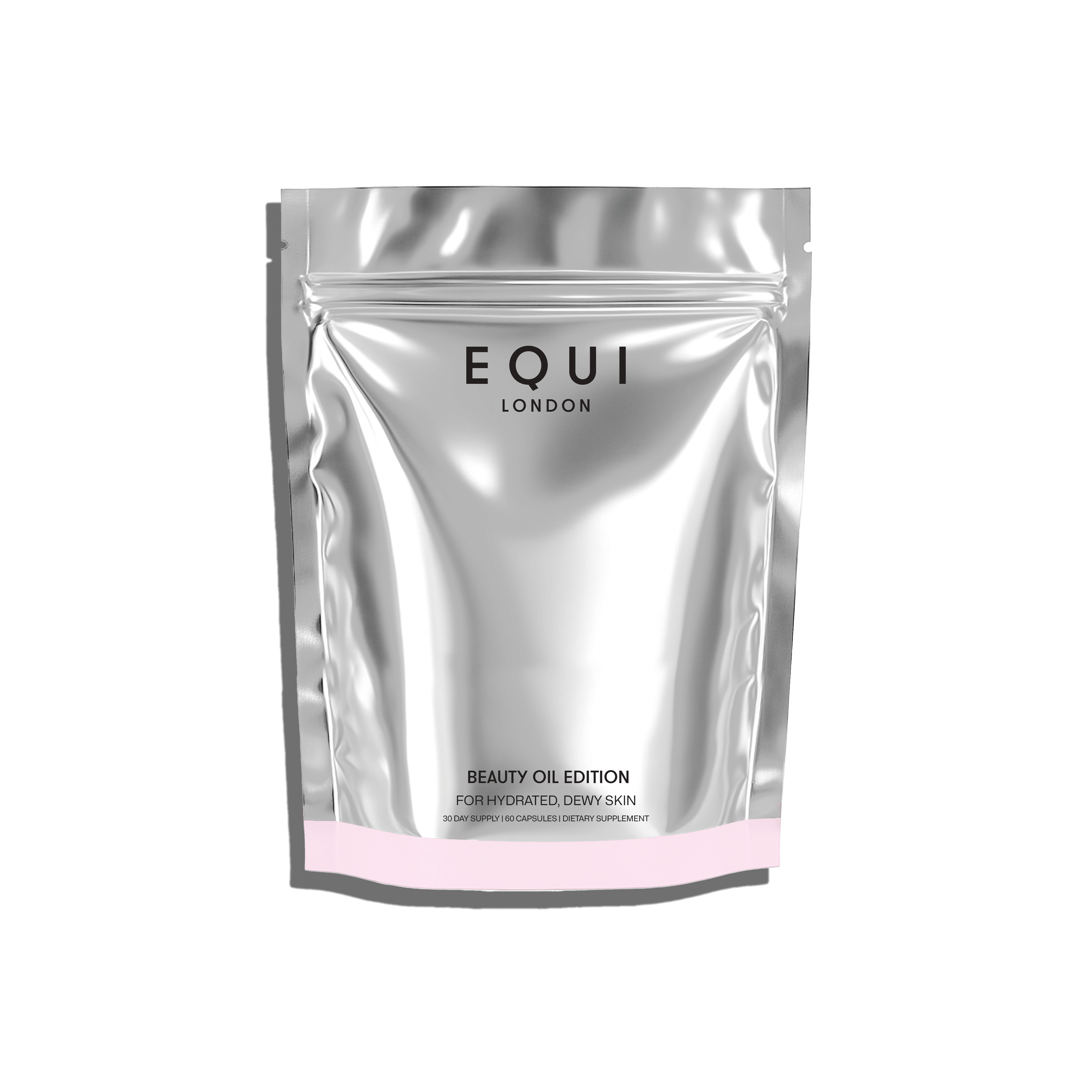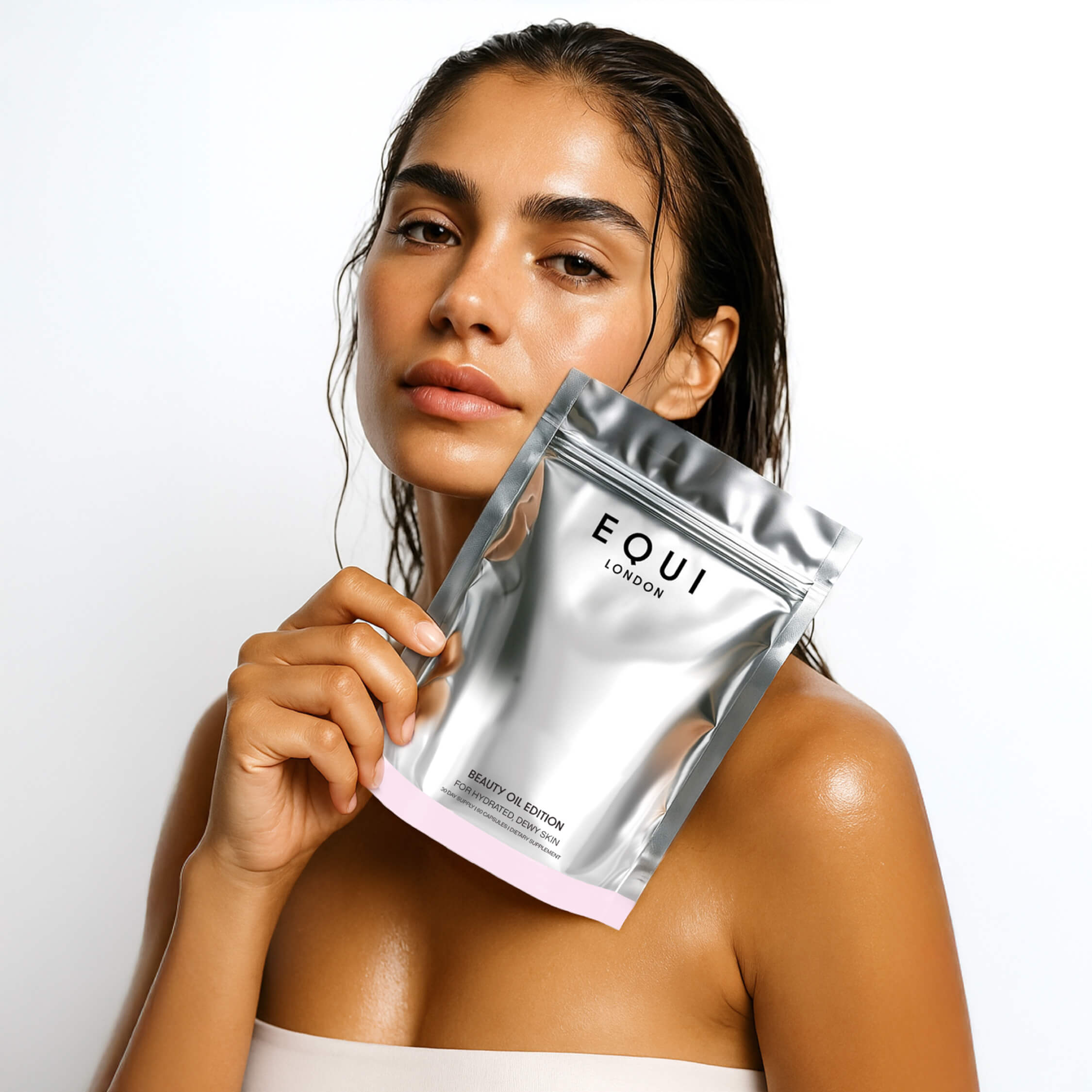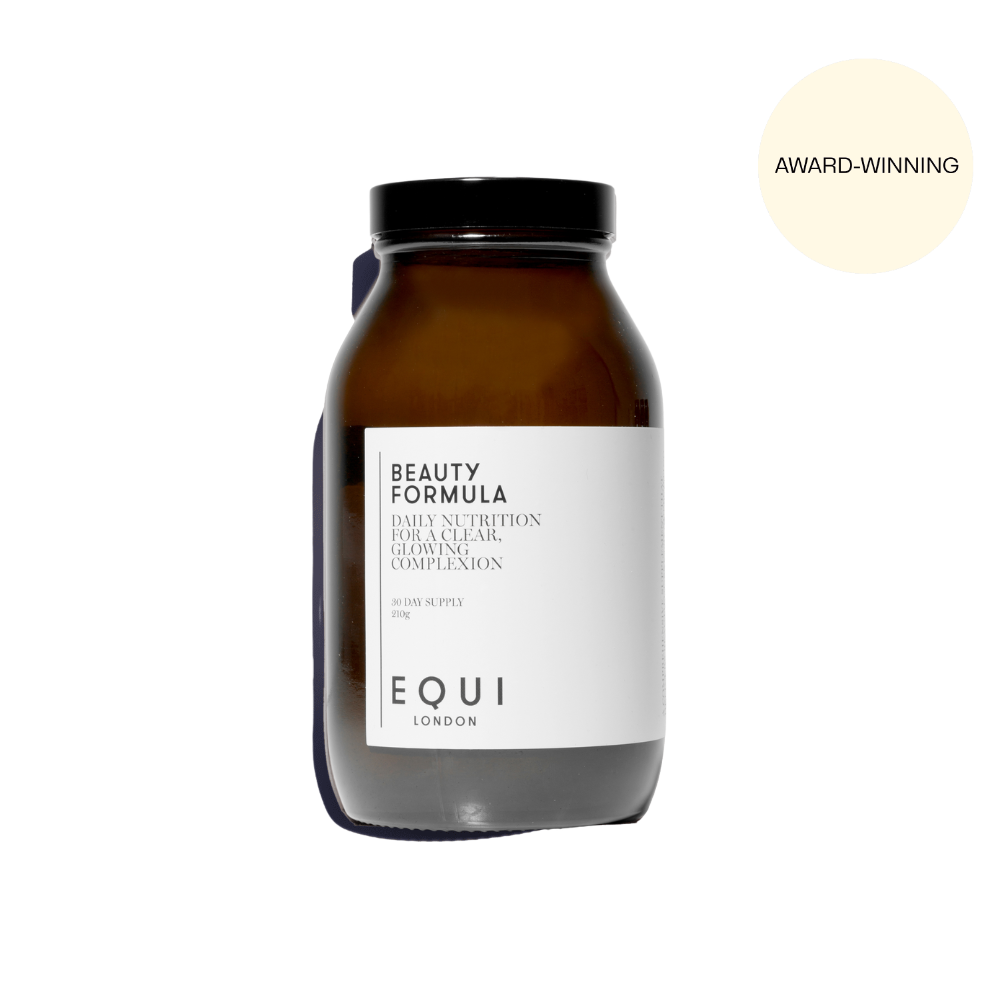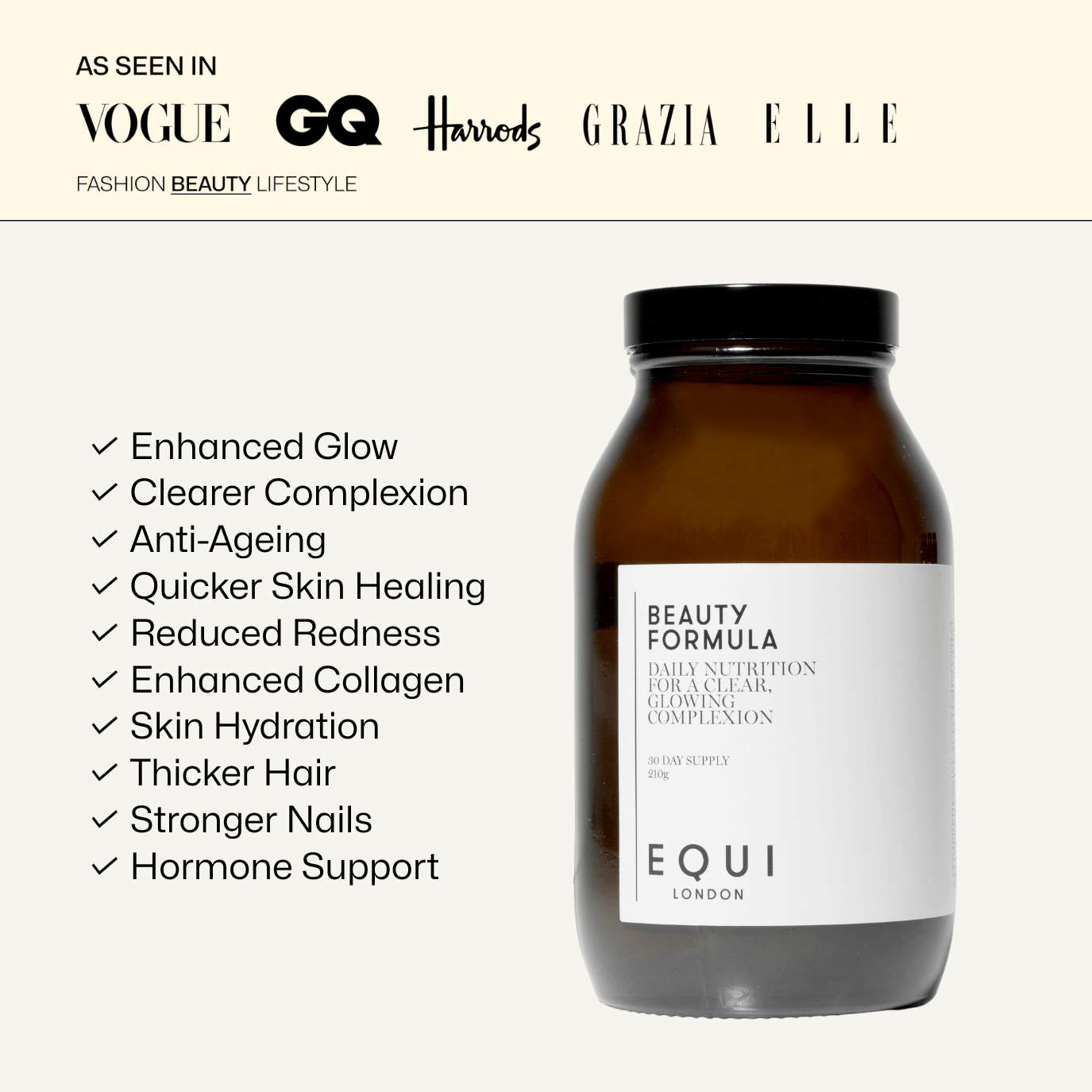The Equi Summer Skin Series - hints, tips, and tricks to get your skin summer ready

It’s inevitable that as we age, fine lines and wrinkles will appear, but did you know that we can slow down this process? Here we give you all our favourite anti-ageing beauty hacks, to maintain plump and firm skin and keep fine lines at bay.
The science of skin ageing
As we age, our skin undergoes various changes that can lead to wrinkles, dryness, and other signs of ageing. Skin ageing is a natural process that is influenced by both internal and external factors. Internal factors are determined by genetics and include factors such as hormonal changes, free radical production, and cellular ageing. External lifestyle factors, such as smoking, sun exposure, and pollution, play a significant role in causing premature skin ageing. Here we explain the top 3 reasons why we develop fine lines and wrinkles:
1. UV Damage
One of the most critical factors that contribute to skin ageing is exposure to ultraviolet (UV) radiation from the sun. UV radiation can cause oxidative damage to the skin, leading to the loss of collagen and elastin, which are essential components of healthy youthful looking skin. Studies have found that exposure to UV rays caused a significant reduction in collagen levels in the skin, leading to the formation of wrinkles and sagging skin (1). Sun exposure is also a common cause of sun spots, also known as solar lentigines or age spots. These are small, flat, brown spots that appear on the skin, caused by a build-up of melanin, the pigment that gives skin its colour.
2. Pollution
Another significant factor that impacts skin ageing is pollution. Pollution in the air can cause oxidative stress in the skin, leading to inflammation, hyperpigmentation, and premature ageing. Studies find that increased exposure to fine particulate matter is associated with increased signs of skin ageing, particularly in women (2).
3. Hormonal Changes
In addition to external factors, there are also internal factors that contribute to skin ageing. Hormonal changes, such as a decrease in oestrogen levels which we typically see during the menopause, can lead to a reduction in collagen production, causing skin to become thinner with increased wrinkles. A study found that postmenopausal women had lower skin elasticity and increased skin dryness compared to premenopausal women (3).

Can the foods we eat, slow down skin ageing?
Absolutely!! Whilst a poor and low nutrient diet can speed up the ageing process, a nutrient-dense and colourful wholefoods diet help to protect it against damage caused by free radicals. If you didn’t know, free radicals are unstable molecules that can cause oxidative stress and damages cells such as the skin cells, leading to wrinkles, sagging skin, and other common signs of ageing. Here are some of our favourite anti-ageing nutrients to eat daily and why:
Vitamin C
This antioxidant is essential for collagen synthesis, which is necessary for skin elasticity and firmness. It also acts as an antioxidant that helps to protect the skin against free radical damage caused by UV radiation, pollution, and other environmental stressors. Studies have shown that oral supplementation of vitamin C can improve skin texture and reduce fine lines and wrinkles in the elderly population (4). Foods rich in vitamin C include tomatoes, citrus fruits, berries, and kiwis.
Collagen Peptides
Collagen is a protein that provides structure to the skin, but as we age, we produce less, hence why wrinkles can appear! Studies have found that supplementation with collagen peptides can improve skin elasticity and hydration, reduce wrinkle depth, and increase skin firmness (5). Eating foods that are high in collagen, such as chicken, fish, and gelatine, can also help to keep skin looking young and firm.
Hyaluronic Acid
One of our favourite Beauty Formula nutrients that helps to keep skin hydrated and plump. Hyaluronic acid is a naturally occurring substance that helps to bind water to the skin, keeping it looking plump and reducing the appearance of wrinkles and fine lines. It also helps to protect the skin from damage caused by free radicals. One study found that hyaluronic acid supplementation improved skin ageing in women. The women saw significant improvements in skin elasticity, wrinkle depth, and skin hydration (6). Eating foods that are high in hyaluronic acid, such as fruits and vegetables, can help to keep skin looking plump and youthful – head to our latest blog to read more.
Zinc
Essential for skin health, zinc helps to protect skin from damage caused by free radicals and keeps skin hydrated. When zinc levels are low, the skin is more likely to be damaged by the sun and other environmental factors. One study found that zinc supplementation improved the appearance of sun damaged skin, with significant improvements in skin roughness, hyperpigmentation, and overall appearance (7). Foods that are high in zinc include oysters, red meat, poultry, and pumpkin seeds.
At Beauty Formula’s core is EQUI’s proprietary GlowCutis® blend, a collagen-stimulating, antioxidant powerhouse to nourish skin, hair and nails. Containing Hyaluronic Acid, Type 1 Marine Collagen petides, Zinc, Vit C, Pine Bark Extract, Resveratrol & Silica, which work together to support every stage of the skin cell cycle, strengthening and helping to counteract premature skin ageing.
Beta-carotene
Beta-carotene is a natural pigment found in mostly orange vegetables such as carrots, squash, sweet potatoes, orange peppers, and cantaloupe. It can also be found in some greens such as spinach. Studies have found that both supplementation and consuming a high beta-carotene reduced UV-induced skin damage (8,9). Beta-carotene has also been shown to increase skin hydration and elasticity, which can improve the appearance of wrinkles and fine lines. Another study found that supplementation with beta-carotene increased skin hydration and elasticity (10), which in turn reduced the appearance of ageing.
Antioxidants
These play an important role in reducing skin ageing by neutralising free radicals, which can damage skin cells and collagen. Foods rich in antioxidants include berries, green tea, dark chocolate, and other fruits and vegetables. A study found that anthocyanins, a type of antioxidant found in berries, can improve skin elasticity, and reduce wrinkle depth and roughness (11). To increase, your intake of antioxidants, consider upping your intake of plant foods. Read our recent blog on how to consume 30 plant-foods per week.
Pine Bark
Pine bark extract contains several compounds that are thought to be beneficial for the skin, including oligomeric proanthocyanidins (OPCs), flavonoids and tannins. OPCs are antioxidants that can help protect the skin from damage caused by free radicals. Flavonoids are another antioxidant that can help reduce inflammation and improve blood circulation, which contribute to skin aging. Tannins can help to tighten the skin and reduce the appearance of wrinkles. One study found that pine bark extract was effective in reducing the appearance of wrinkles and age spots (12) and another found that the extract was effective in increasing skin hydration (13).
Resveratrol
A polyphenol found in the skin of grapes, red wine, peanuts, and some berries. It has been shown to have a few health benefits, including anti-aging effects. Resveratrol is an antioxidant and can help reduce inflammation, which is another factor that contributes to ageing. In addition to its antioxidant and anti-inflammatory effects, resveratrol has also been shown to boost the production of collagen, a protein that gives skin its strength and elasticity and keeps skin looking younger. Studies support the anti-aging effects of resveratrol, as it protects skin cells from damage caused by free radicals (14).
Our Glow Edition contains both pine bark and resveratrol alongside some key anti-ageing nutrients such as vitamin C and lycopene. Pine bark is a skin hero for the complexion, enhancing against skin discolouration, improving hydration and resveratrol is a potent anti-ageing antioxidant.
Omega-3 Fatty Acids
Omega-3 fatty acids are important for maintaining skin cell membranes' integrity, which helps to keep the skin moisturised and protected from external threats. Studies have found that omega-3 supplementation can improve skin hydration and reduce inflammation, which contributes to skin ageing (15). Foods that are high in omega-3 fatty acids include fish, nuts, and seeds. Beauty oil contains 1000mg krill oil, which is a rich source of omega-3.
Aside from a good SPF, what else can help?
Tweak Your Skincare Routine
As we age, our skin changes and therefore, so must our skincare routine. Here are some tips on how to create an effective skincare routine that helps reduce fine lines and wrinkles:
- Cleanse Morning and Evening: Always check the label! Use a gentle. sulphate-free cleanser, such as those without sodium laurel sulphate, sodium laureth sulphate, ammonium laureth sulphate, and ammonium laurel sulphate. Sulphates can strip the skin of its natural sebum, disrupting the skin's microbiome and lipid barrier, leading to dryness and irritation.
- Apply Toner: An alcohol-free toner with beneficial ingredients like hyaluronic acid and niacinamide can further cleanse your skin and restore its pH balance to it's naturally slightly acidic state. Hyaluronic acid is a powerful humectant that attracts water to the skin, improving hydration, while niacinamide, a form of Vitamin B3, helps to strengthen the skin barrier and reduce inflammation.
- Exfoliate Once or Twice Weekly: A chemical exfoliant that uses natural fruit acids (AHAs) works to dissolve the bonds between dead skin cells, promoting their removal and revealing fresh, new skin. This process of cell turnover can reduce signs of ageing and hyperpigmentation and improve skin texture.
- Use a Vitamin C Serum: A daily application of a Vitamin C serum should be a key part of your morning skincare routine. Vitamin C, or L-ascorbic acid, is a potent antioxidant that neutralises harmful free radicals, which can cause oxidative stress and accelerate skin aging. It also aids in collagen synthesis, improving skin elasticity and reducing the appearance of fine lines. Moreover, it works to brighten the complexion and fade hyperpigmentation, resulting in a more even-toned and radiant skin. Always remember to follow up with sunscreen, as Vitamin C can increase your skin's photosensitivity.
- Moisturise: Seek a moisturiser with hyaluronic acid, a potent humectant that binds water to the skin, enhancing hydration and contributing to a plumper, more youthful appearance.
- Eye Care: Use an eye cream enriched with ingredients such as caffeine. Caffeine constricts blood vessels under the skin, reducing puffiness and the appearance of dark circles, while also mitigating fine lines.
- Mask Treatment: Use a face mask once a week. Look for formulas enriched with beneficial ingredients such as hyaluronic acid for deep hydration (we love the sheet masks), vitamin C for brightening and antioxidant protection, AHAs/BHAs for exfoliation and renewal, and peptides or retinoids for anti-aging benefits. Additionally, soothing agents like aloe vera or chamomile can reduce inflammation, and clay or charcoal masks can help manage oiliness and clear pores. These ingredients work together to deliver concentrated nutrients to the skin, helping to address concerns such as dryness, dullness, or wrinkles.
- Consider Retinol: Retinol, a derivative of Vitamin A, boosts cell turnover and collagen production, reducing wrinkles and age spots. Introduce it gradually, as it can cause irritation while the skin builds tolerance.
- Sunscreen is Essential: Daily application of broad-spectrum sunscreen with SPF 30 or higher protects against both UVA (aging) and UVB (burning) rays. UV exposure can accelerate skin ageing and increase the risk of skin cancer. Remember, retinol makes your skin more sun-sensitive, so sunscreen use is especially crucial after a retinol night.
Facial Massage
Facial massage can help to cleanse, exfoliate, and moisturise your skin, addressing specific concerns, such as wrinkles, age spots, or fine lines. Facials are even backed up by research! A study found that facials can be effective in improving the hydration and elasticity of the skin (16). One of the main benefits of facials is that they can increase blood circulation in the skin. This can help to deliver more nutrients to the skin cells and to remove any toxins, improving the overall appearance of the skin. Facials often include deep moisturisation and exfoliation too, which can help to hydrate the skin, plumping up the skin, removing any excess skin cells from the surface of the skin, helping to reveal the fresh, new skin underneath, and helping to improve the overall appearance of wrinkles and age spots. Whilst facials are not a miracle cure for ageing skin, they can be an effective way to reduce the appearance of wrinkles, age spots, and other signs of ageing. It is also important to choose one that is right for your skin type and concerns.
Sleep Reduces Skin Ageing
Sleep is essential for overall health and well-being, and it can also help to reduce the signs of ageing. When you sleep, your body produces hormones that help to repair cells and tissues. It also helps to reduce inflammation, which can damage cells and contribute to the signs of ageing. When you don't get enough sleep, your skin can look tired and dull. If you needed more convincing to get some more ZZZ’s, studies have found that sleep deprivation can accelerate the ageing of skin cells (17). Aim for around 7-8 hours of sleep each night. We recently gave a few tips on how to improve sleep in this blog If you are struggling to get enough sleep, you may want to speak to your doctor or a medical professional.
Click Here for references used to write this article.
Find your Equilibrium - Order Today!
Money-back guarantee. 30-day supply
